Vicki Wallis is a freelance designer, production strategist and sustainability expert, experienced in taking garments from their initial concept, through the design process and into production. Through her not one but two businesses, Vicki Wallis Ltd and The Fashion Business Coach, Wallis specializes in women’s commercial fashion, swim and activewear, helping promote sustainability and ethicality within the fashion industry and helping startup fashion brands with the beginning processes of their business.
303 Magazine: Where did your journey Vicki Wallis Ltd and The Fashion Business Coach begin? Give me the background information leading up to the creation of your own two companies and what inspired you to get involved in the fashion industry specifically.
Vicki Wallis: Professionally, the fashion industry is all I’ve ever known, but it’s definitely not a field I expected to get into when I was younger. I had planned to study humanitarian law and politics at university and worked hard to make it happen, but a couple of months before I was due to start my course I had a change of heart and ended up switching to Fashion Design with Manufacture, Marketing and Promotion. I’ve always wanted to have a positive impact with my career and while, of course, humanitarian law would allow me to do that, so does fashion – almost everyone on earth wears clothes so the scope for positive impact is huge given how damaging the industry is. Plus, on a lighter note, I realized that I would miss being creative if I had to be studying with textbooks every day!
I worked in house for fashion brands for 12 years to get the knowledge I needed to launch my own business, which I did four years ago. The Fashion Business Coach allows me to combine my passions of design, business strategy, and sustainability, as I work closely with emerging labels to get them off the ground. More recently, in 2019, I also created Vicki Wallis Ltd, which specializes in helping larger brands who need to outsource design and production work or move towards more sustainable production.
303: What interests you most about fashion, owning your own business in the fashion industry, and why is fashion important to you?
VW: Fashion can mean so many things. To me, it’s both an expression of your personality and also of your values. I personally am more of a minimalist and I think my way of dressing shows that. I also love the power that clothing has — I dress to how I want to feel. For example, if I’m feeling nervous about a presentation, I have the go-to jacket that I wear as I feel more confident in it. A great outfit can empower and give the wearer what they need. As a designer, I enjoy designing pieces that customers are excited to wear. Fashion is ever-changing and the fast pace really suits me.
I also believe that everything we buy, fashion or otherwise, is like casting a vote. A vote of support for the company producing the goods. These days I think company values are becoming more and more important to people, especially as the unethical treatment of workers and animals becomes more apparent and customers are conscious of it. The great news is that it’s actually easy to stop unethical treatment, consumers just need to stop ’voting’ and saying it’s ok. For this reason, I only shop with brands that share my values, and the more people who do that, the fairer the industry will become. It’s important for me to have a fashion business so that I can educate on things like this and I hope, help to steer the industry in a more positive and inclusive direction.
303: Describe Vicki Wallis Ltd and how you manage to be a fashion designer, production expert and sustainability strategist.
VW: I guess in the fashion industry it’s unusual to be all three things — designer, production manage and sustainability strategist. But to me, to create a great product it’s essential that you have those three aspects combined. When I worked in-house for bigger companies, you tend to get stuck in one area. For example, you just design, or you just work on the production. To me, that doesn’t make sense and it can become very inefficient. In my 12 years in the industry, it was important to me that I moved across businesses, rather than just upwards into senior roles so that I could understand the garment development process from start to finish. This experience has allowed me to set this company up in a way that allows customers to receive strategy at the start which will guide them through from initial idea to production, the whole process is a lot more streamlined. Plus, I consider sales strategy too, so that clients end up with a product they can actually sell. One of my previous roles was as a fashion buyer, so the numbers are always in the back of my mind! I like to work holistically, so any work I do is usually a combination of strategy, design, production, and sustainability, rather than having everything separate.
303: Why was it important for you to create a fashion business catered towards helping other individuals and businesses in the industry?
VW: The fashion industry is notoriously secretive and I wanted to change that. Even after I’d finished my degree, when it came to starting my own fashion brand, back in 2011, it was tough. My education hadn’t prepared me for the real world and there was a real lack of practical, actionable advice out there for people wanting to start a fashion business. Because of that, I wasted so much time and money that could have been avoided. That’s why it was important for me to create a platform that offered the support that brands needed. I also wanted to let people know that you don’t need to have $10,000+ to start a brand with. Sure, you can start with that much cash if you want, but I also wanted to support people who are on a budget, just like I was. If you’re willing to put in the time and if you have a good business strategy, you can start a business with hundreds, not thousands. I wanted to challenge the idea that you have to have massive savings, a wealthy family, or go into huge debt to become a business owner – it doesn’t have to be that way.
303: What do you enjoy most about both the designing aspect of what you do with Vicki Wallis Ltd and helping others in their business process with The Fashion Business Coach?
VW: For the corporate side, Vicki Wallis Ltd, I especially like the initial stages of the design process, as it’s a lot freer. I do refer to trend research and reports, but I also like to add in some of my own references too. This can be anything from artists I like to nature, to city skyscrapers. It depends on the project and what I’ve been doing lately. I can try out loads of ideas and see what works and what doesn’t. I mostly work with commercial businesses, so after the initial design stages the process isn’t so creative, it’s more to do with manufacturing details and the practicalities. I still enjoy this side of the work, but it’s different and not so creative. For The Fashion Business Coach, brands often come to me with their own design ideas, but as many of them don’t have manufacture experience they come to me specifically for this. So I help them to get their ideas out of their head and into a factory-ready format. I’ve realized that some people have trouble visualizing the finished product, so the 3D renders that I’ve been working on more recently have really helped them with this.
303: What have you found to be the biggest challenge of working in this industry?
VW: In terms of having a career in fashion, I think the hardest thing is getting through the door and having an opportunity to be considered for a job at a brand. Fashion’s not like other industries where you see a job listed, apply for it and if you’re most experienced, you’ll get the job. In fact, many jobs aren’t even advertised. When I worked for big companies, all of the jobs that I got were either a referral or I started off as a temp and the company made a job for me. I think it’s very hard to break into the fashion industry, especially if you’re like me and don’t live in a fashion capital where you have the chance to network at events. Even now, I still get pushback from brands because I don’t live in London or New York and it makes them nervous – I’m just glad that we have the internet and more and more brands are open to having remote workers!
303: What do you hope for the future of both Vicki Wallis Ltd and The Fashion Business Coach?
VW: I would love to be able to expand my team so that I can help clients out more with the daily running of their business, particularly through The Fashion Business Coach as clients I work with often start their business as a part-time venture so having enough time to spend on their brand can become difficult. Right now, I do have a couple of amazing women who help me and it’s great to support other female entrepreneurs and their freelance businesses, this is something that I want to continue and expand on. Ultimately, I’d love to be able to contribute more to sustainability. At the moment, it’s not possible to create a product that’s 100% sustainable and there still needs to be a lot of development in this area, it would be great to be able to help make this happen!
All photography provided by Vicki Wallis





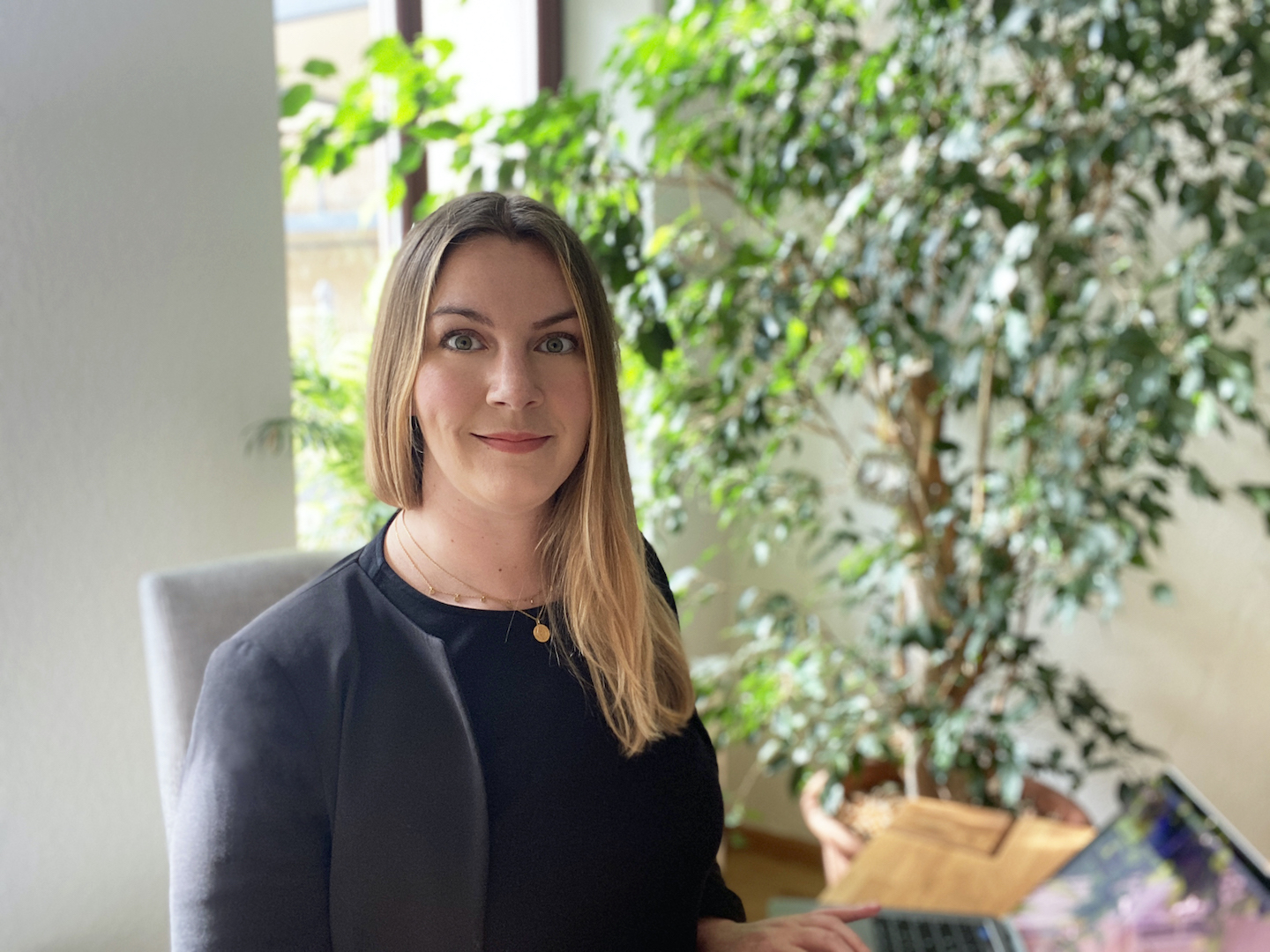
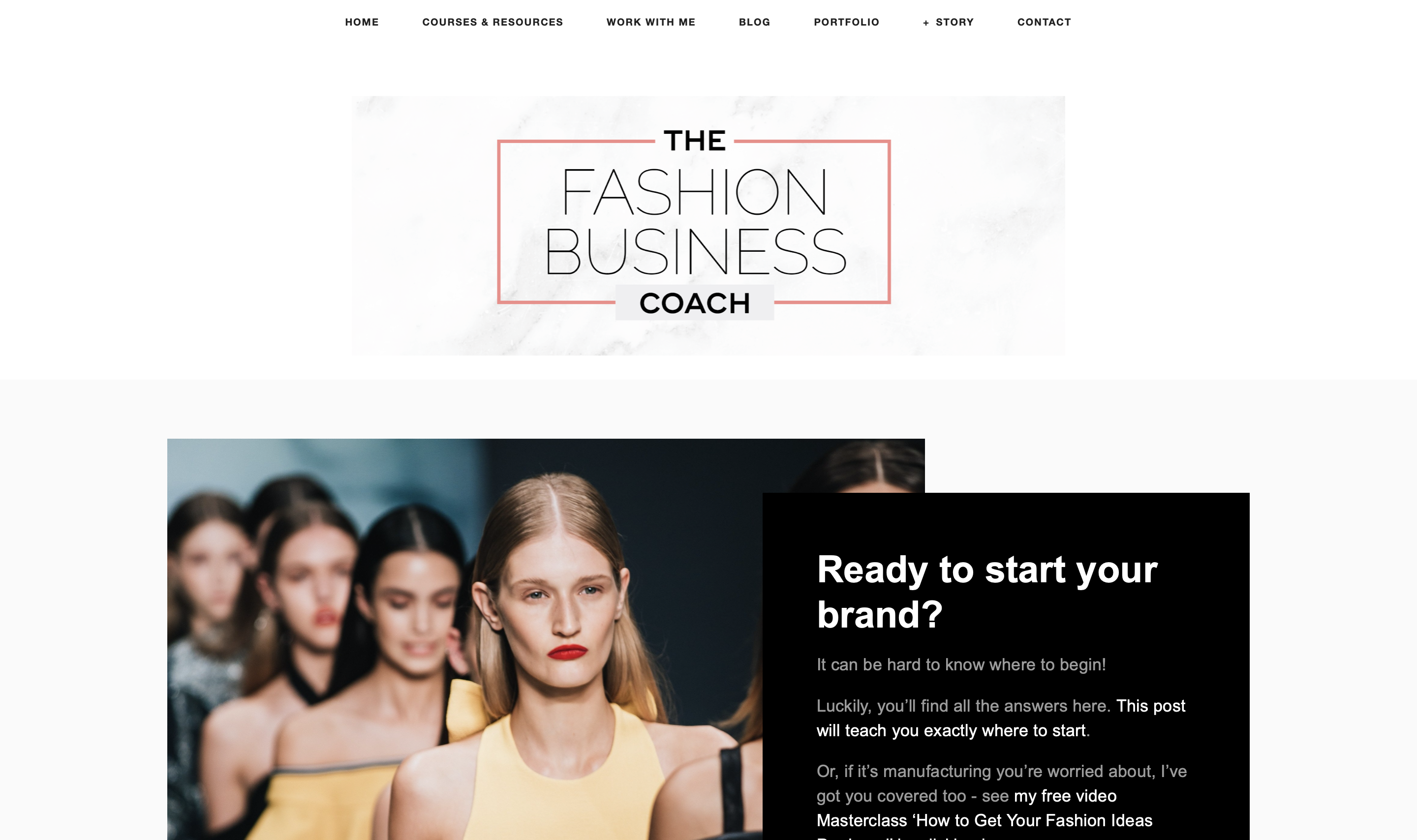
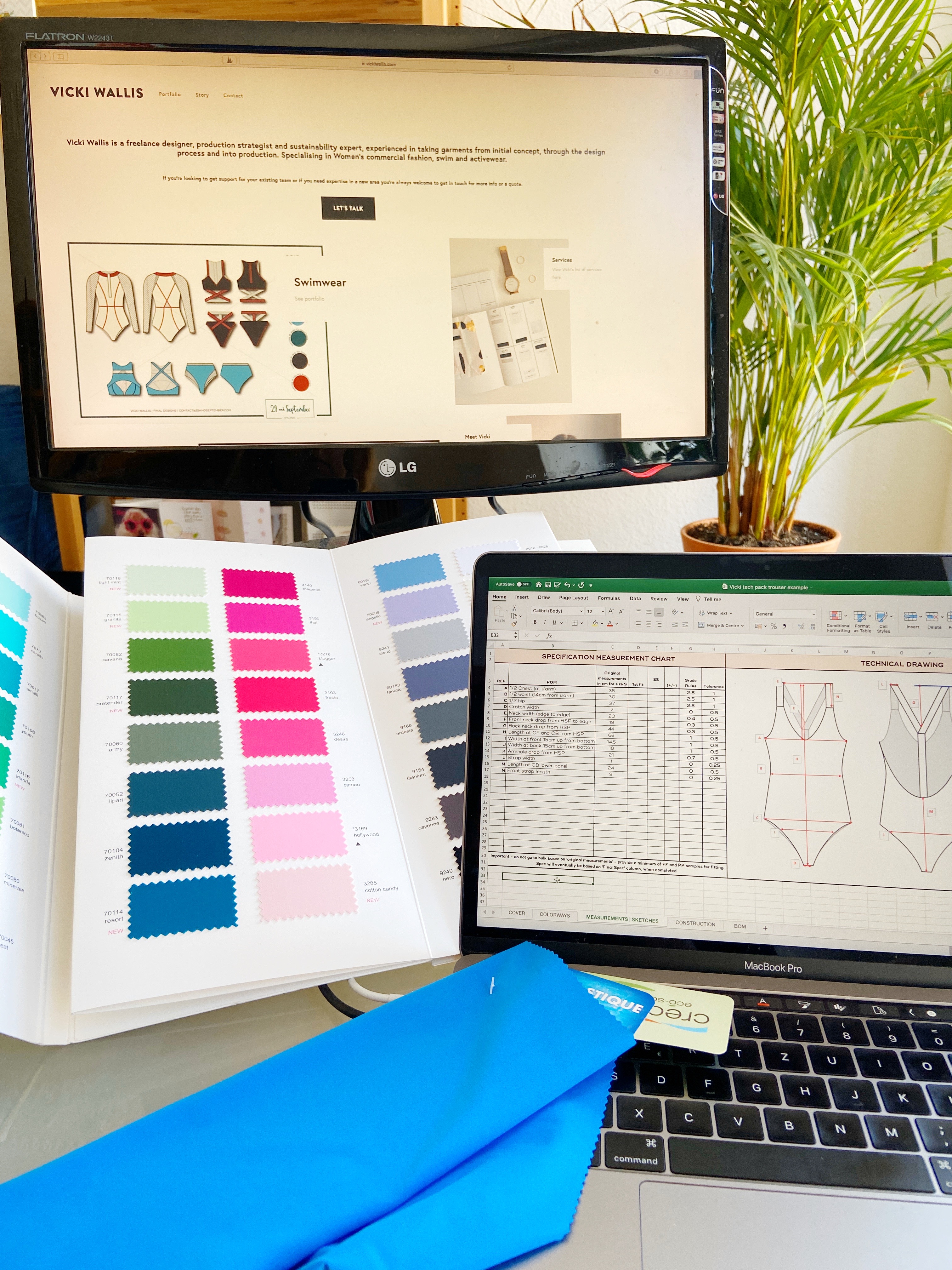
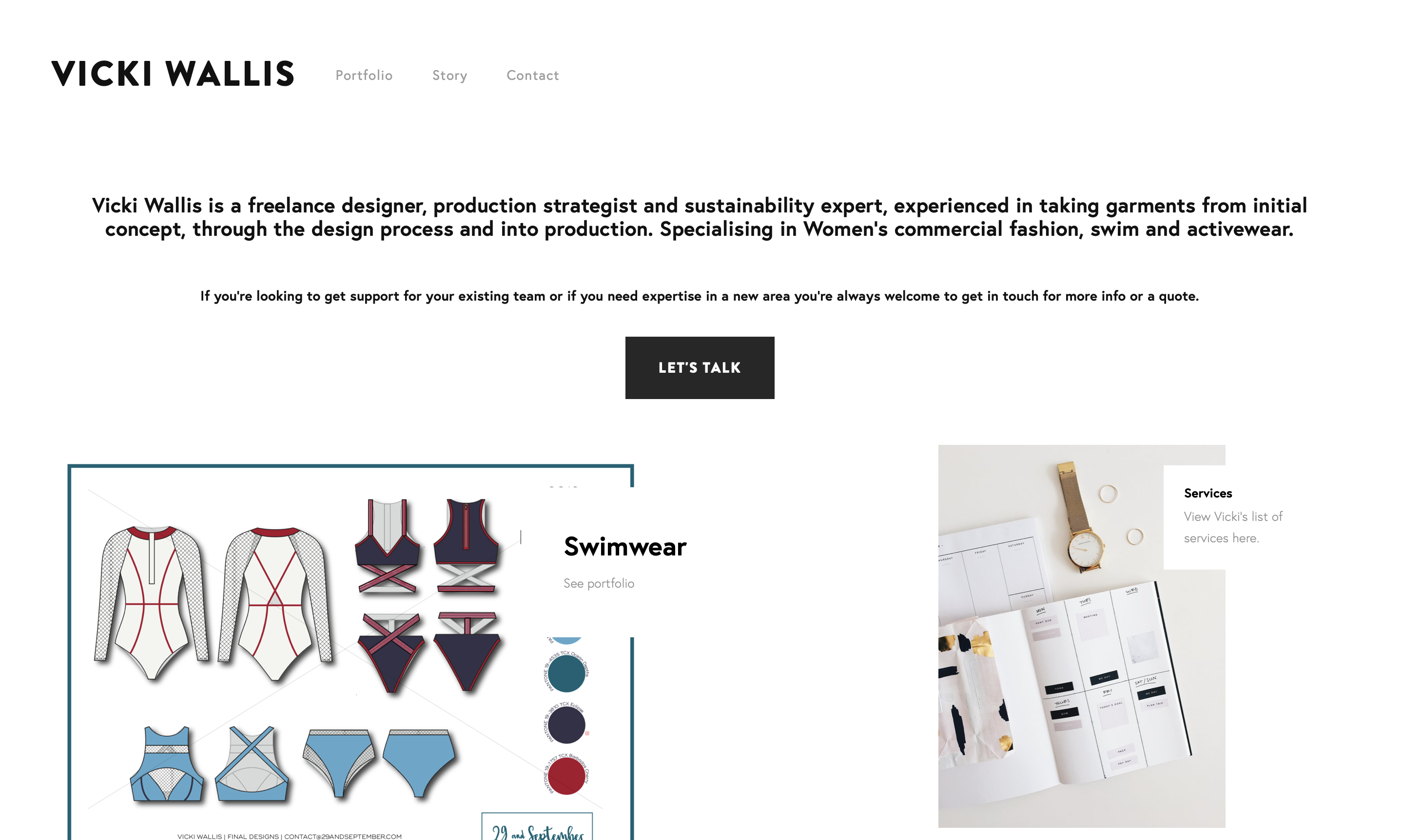
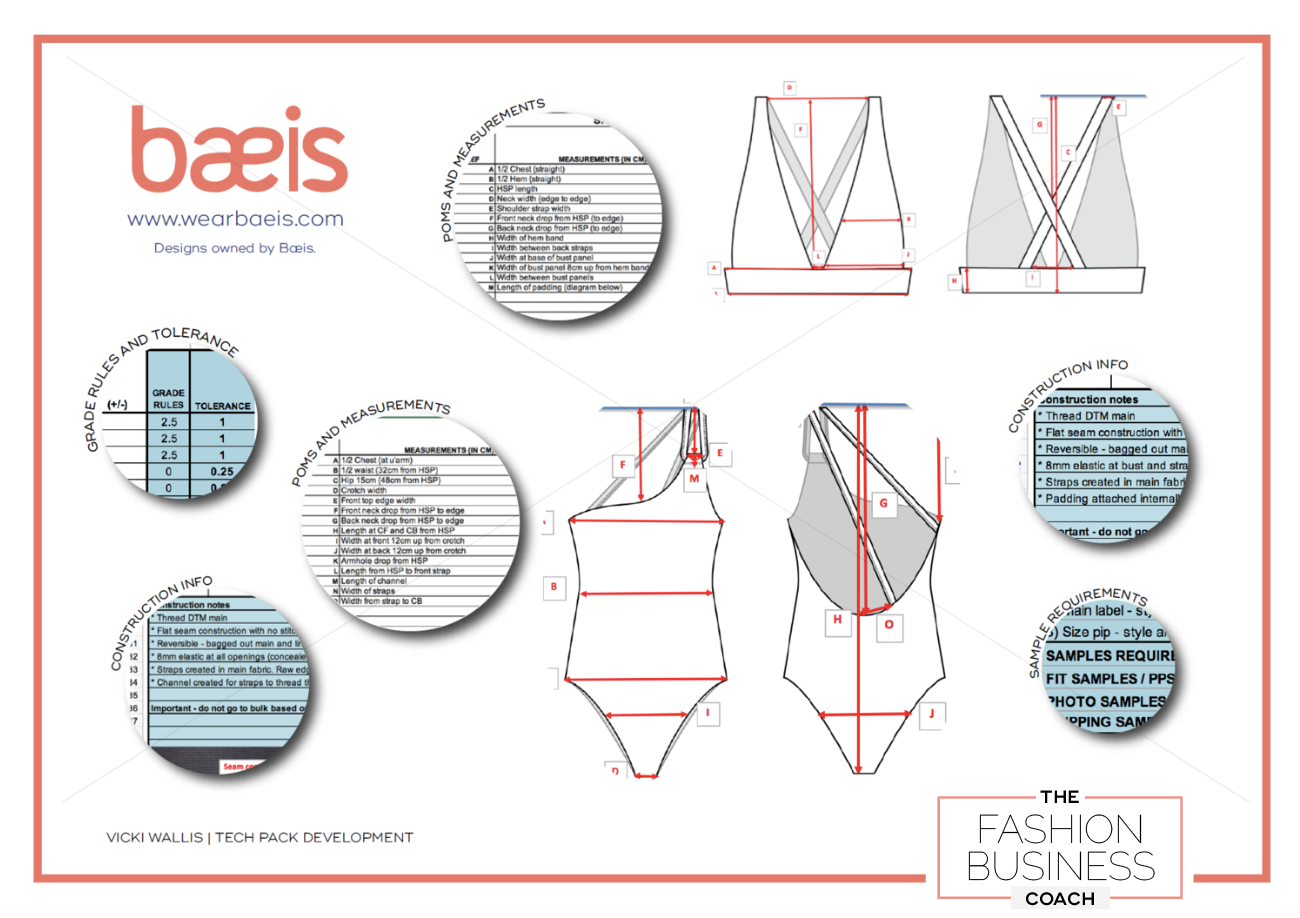
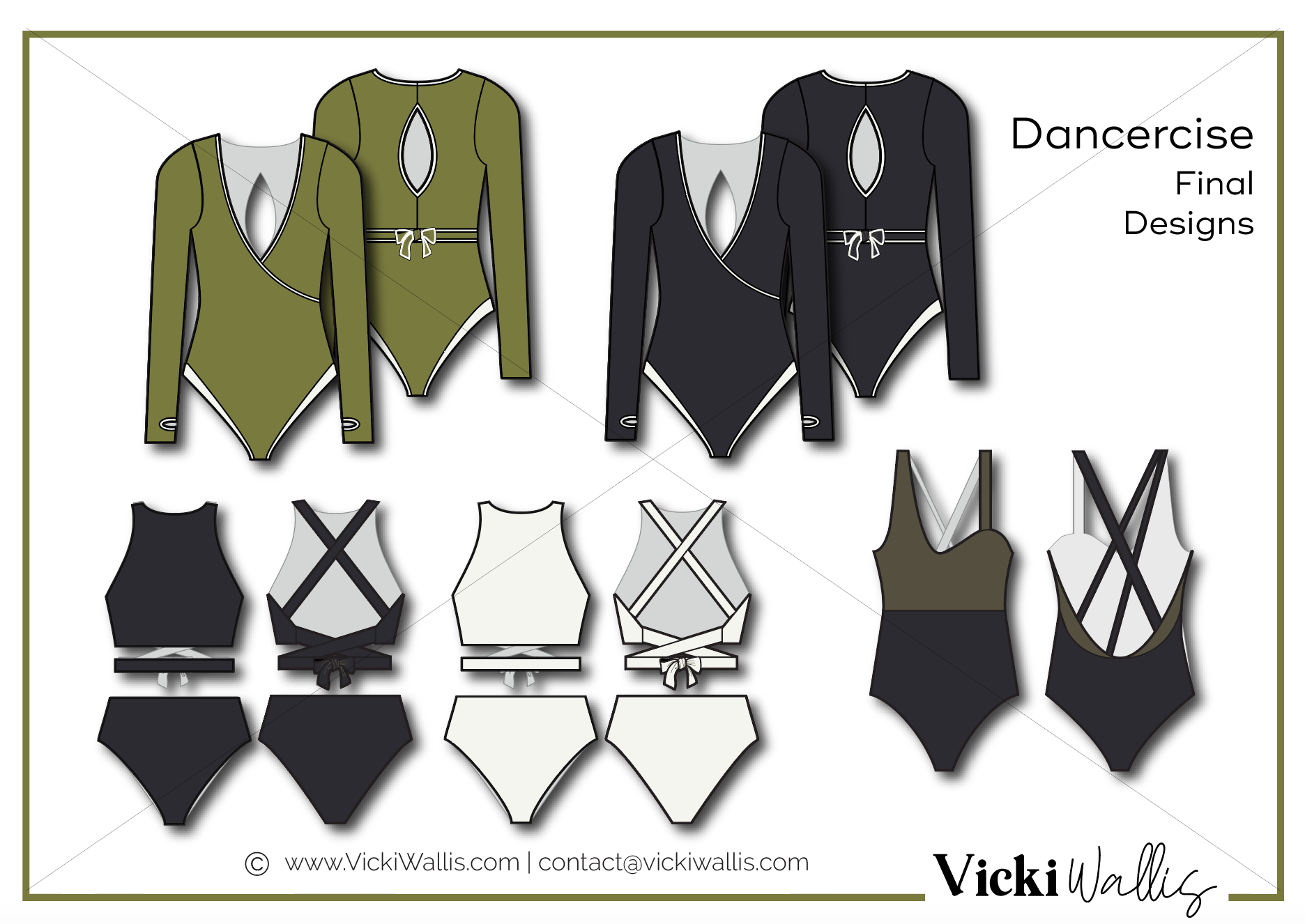
What a great interview! As a freelance fashion designer myself, Vicki completely nailed it about how the fashion industry operates today. Vicki’s passion for sustainability, helping start ups/ established brands and even other freelancers is a true testament of her true talents and kind heart. Traits that the fashion industry needs more of .